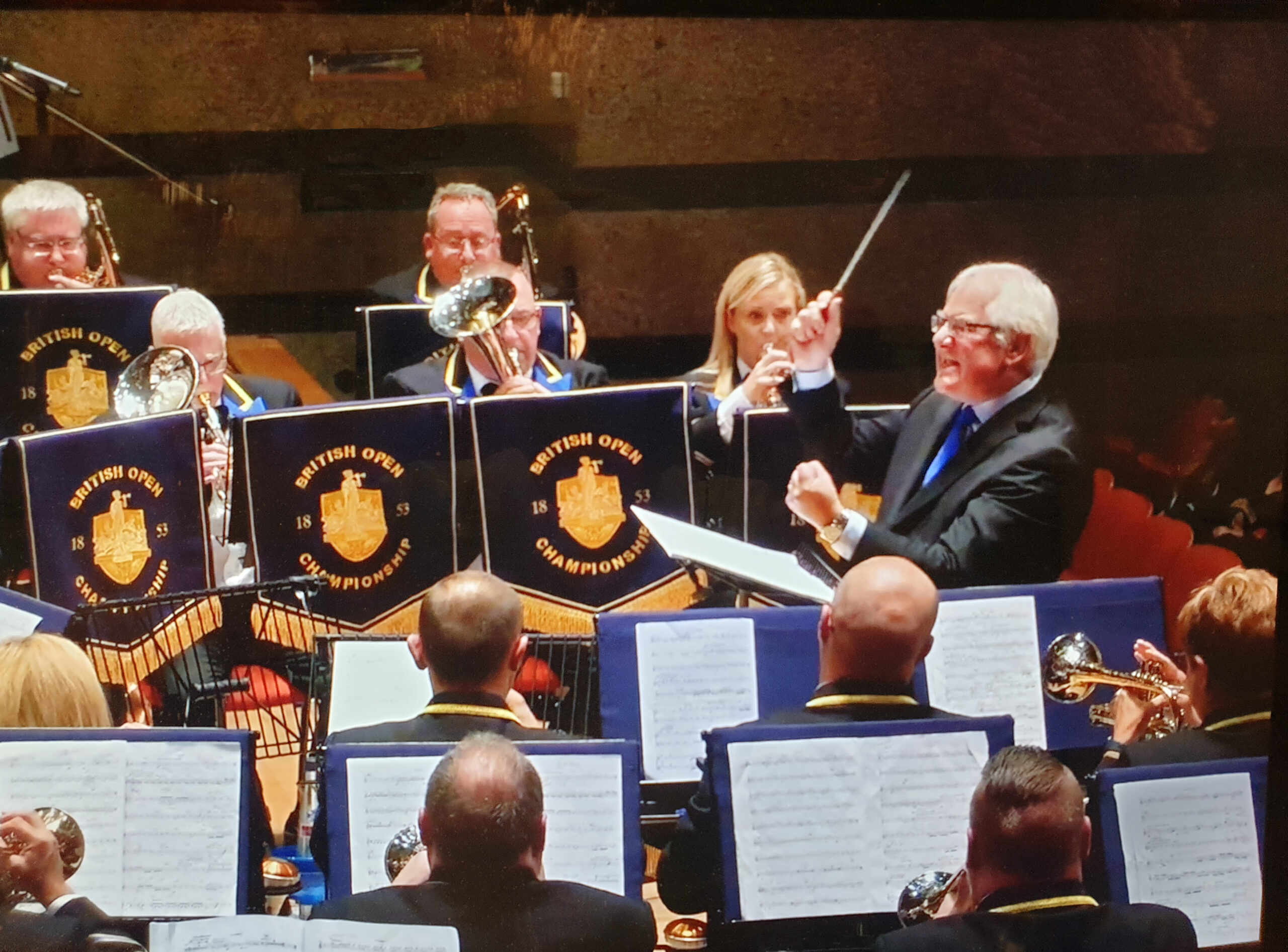Ray Farr is based in Jessheim just outside Oslo, Norway, combining freelance conducting, arranging, adjudicating, and academic research.
Ray conducting at Symphony Hall, Birmingham 2022.
Ray was brought up in a musical family in Hereford, England. He started playing the cornet at the age of 5, and later joined the Hereford Salvation Army Band where his father (Kenneth) was bandmaster. Important, early influences were the County Youth Orchestra, the National Music Schools of the Salvation Army and the National Youth Brass Band. When he left school, he also played with Birmingham Citadel Band and Tottenham Citadel S.A. bands.
Between 1965 and 1969 he studied at the Birmingham School of Music (with John Lamb) and at the Royal Academy of Music (with William Overton), where he played 1st trumpet in the academy’s orchestra. During this period, he was frequently featured as a soloist with different bands and orchestras.
In 1969 Ray was appointed co-principal trumpet with the, now defunct, BBC Midland Light Orchestra in Birmingham and was often used as extra player in the City of Birmingham Symphony Orchestra. He was also appointed as Trumpet Professor at his former Conservatory, the Birmingham School of Music. He left Birmingham in 1973 to join the BBC Radio Orchestra in London as co-principal trumpet.
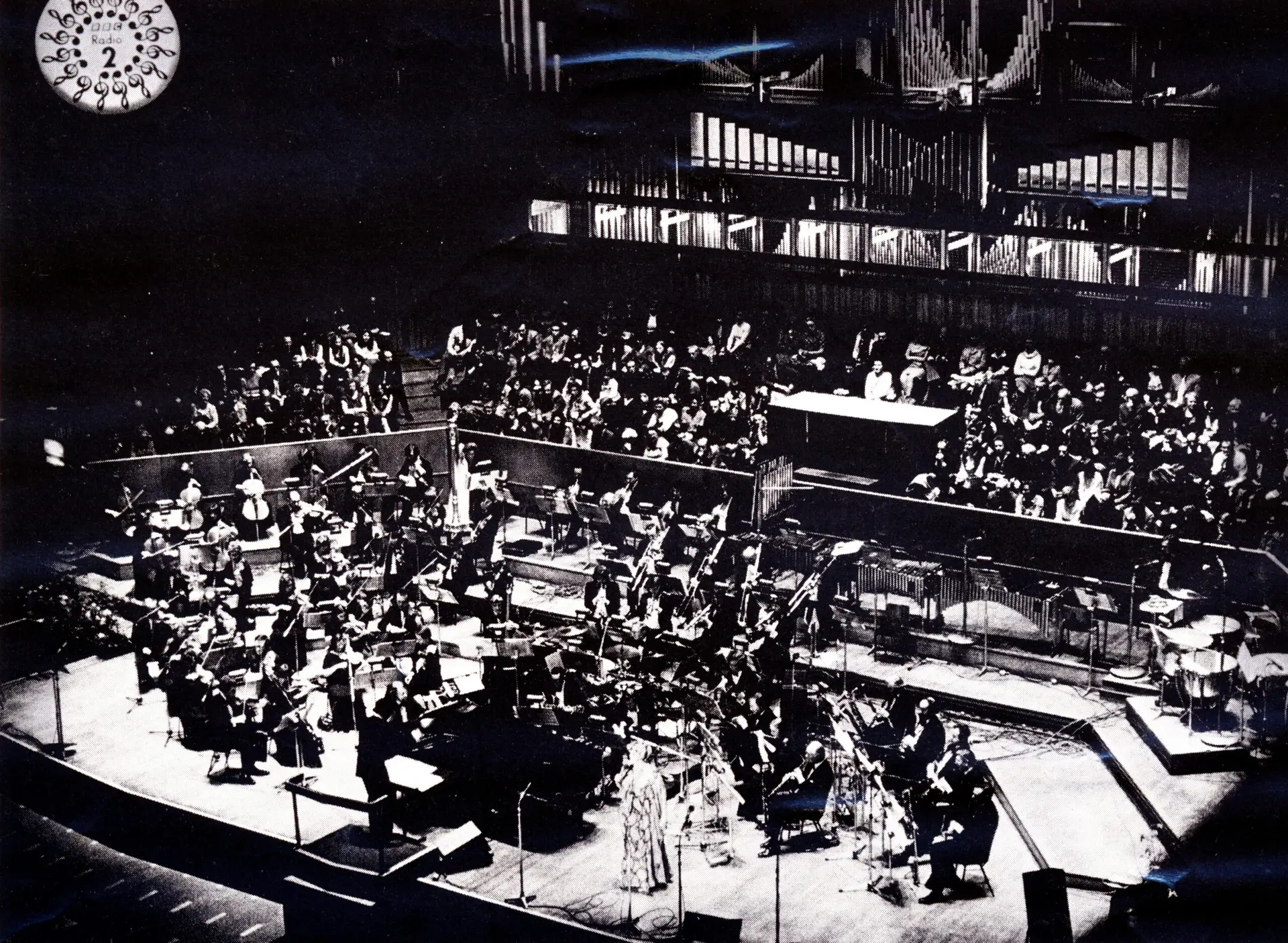 The BBC Radio Orchestra at the Royal Festival Hall 1978
The BBC Radio Orchestra at the Royal Festival Hall 1978
In the years that followed Ray also worked with other top London orchestras for concerts, film sessions (including a James Bond film), TV and records. This was also the time he started conducting various amateur bands.
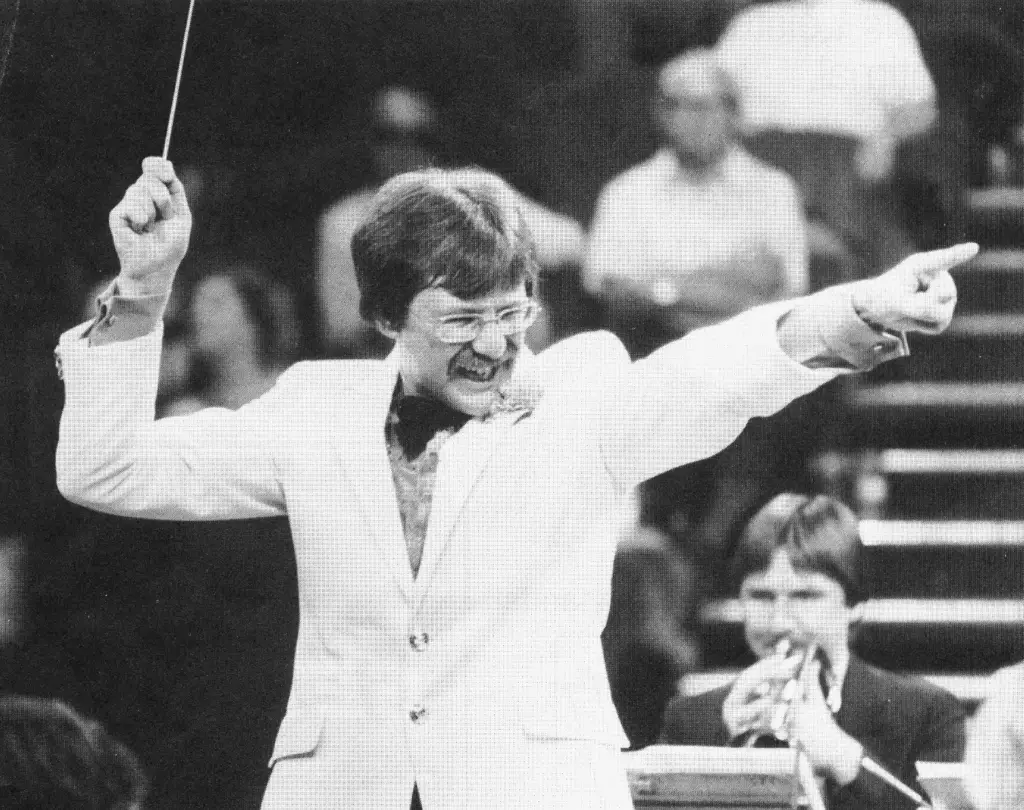 Ray conducting Grimethorpe at Granada Band of the Year 1982
Ray conducting Grimethorpe at Granada Band of the Year 1982
In 1979 he accepted a full-time position as Resident Conductor with the famous Grimethorpe Colliery Band and during the five years he was with Grimethorpe, the band won several contests and gave hundreds of concerts throughout Britain and Europe. During this time there were many special occasions, notably Leeds Music Festival, Harrogate Contemporary Music Festival, Aldeburgh Festival, Cheltenham Festival, Litchfield Festival and the concert tour of Australia, which climaxed in a performance of “Pictures from an Exhibition” in the Sydney Opera House.
While he was with Grimethorpe he was encouraged, by Elgar Howarth, to write music. One of his first arrangements was “Star Wars”, by John Williams, which soon led to a string of successful and popular arrangements. Early on Frank Renton called him: “Ray of the magic pen”, and now, after hundreds of successes, bands regularly play his pieces which range in style from Bach’s Toccata in D to Stravinsky’s “Firebird”. Ray has received many accolades and positive reviews for his arranging skills including Joseph Horovitz (“My first-choice band arranger”) and Malcolm Arnold (“He’s a genius!”).
In 1984 (the time of the pit closures) he left Grimethorpe to freelance, having developed a reputation as a stylish conductor and a planner of interesting concert programmes ranging from light music to “avant-garde”. The Brass Band World writes: “Ray’s conducting was a joy to behold” and the East Anglian Times says: “superbly controlled with impeccable timing”. While the British Bandsman writes: “Ray Farr has mastered the programme art”. The critic of Bergen’s Tidende says: “He is an elegant conductor radiating intensity with control who has mastered the art of drawing enormous lines with great dynamic range”.
During this time, he appeared as a guest conductor all over Europe most notably with the National Youth Bands of England, Norway and Switzerland and several European Gala concerts.
Ray has been much in demand as a band adjudicator appearing in national competitions in England, Wales, Scotland, Ireland, Holland, Belgium, Sweden, Norway, Australia, New Zealand and America.
As a teacher Ray has given lectures on conducting, arranging and adjudicating at Leeds College of Music, Huddersfield College, Salford College, Newcastle College, Cardiff College and the Music Conservatories of Stavanger, Bergen, Trondheim, Malmø, Gothenburg and Stockholm.
In 1988 Ray won a special Arts Council Award to study contemporary music with Edward Gregson and Jorma Panula, Professor of Orchestral Conducting at Helsinki’s Sibelius Academy.
In 1990 Ray moved to Stavanger, Norway to accept a conducting position with the Music School Youth Orchestra where he was able to combine a regular conducting position with guest conducting. He travelled extensively in Europe, USA and Australia. He also enjoyed conducting the National Youth Brass Band of Norway and Eikanger Bjørsvik Musikklag, who flew him to Bergen twice a week for rehearsals and concerts.
It was during this time that he became involved with wind bands and was appointed Chief Conductor with the Trondheim Military Band and conductor of the National Youth Wind Band of Norway. Other professional and amateur wind band conducting invitations soon followed. The semi-professional Sandnes Symphony Orchestra appointed Ray as Chief Conductor. This gave Ray many opportunities to develop in the fields of opera, ballet and oratorio, which he loved. It also opened the doors to some exciting possibilities in the bigger orchestral world. He has since conducted Norway’s Radio Orchestra on five occasions including a European broadcast, the Stavanger Symphony Orchestra, on a Worldwide TV programme, and the Kristiansand Symphony Orchestra in an exciting concert of French music.
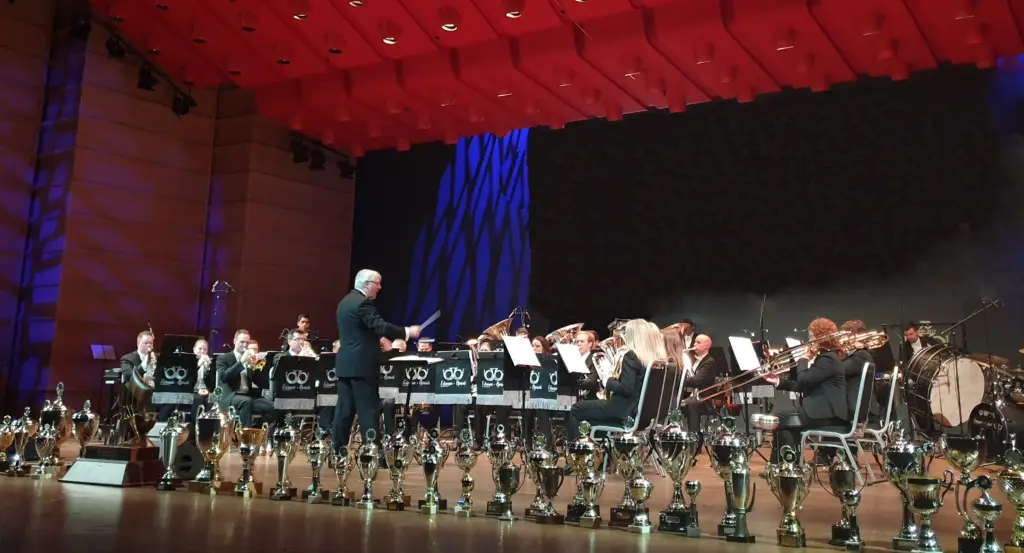 Ray conducting EBML. Grieg Hall 2019
Ray conducting EBML. Grieg Hall 2019
Ray was appointed Musical Director with the Eikanger Bjørsvik Musikklag (Bergen, Norway) in 1995 and with them, gave innovative performances of a wide variety of music on stage, TV, radio and CD.
In 2003 Ray joined the teaching staff at the University of Durham, England as ‘Conductor in Residence’. He spent ten years teaching conducting and arranging as well as studying and researching in the fields of brass band history and brass instrument development.
On retiring from full-time teaching, he moved back to Norway in 2015. Occasional international conducting engagements are combined with concerts in Norway with Tønsberg Wind Band, Eikanger Bjørsvik Musikklag, Krohnengen Brass and Jaren Musikkforening.
In 2019, Ray was the honoured recipient of the Isles Medal for outstanding contribution towards brass band development which was presented at Birmingham Symphony Hall.
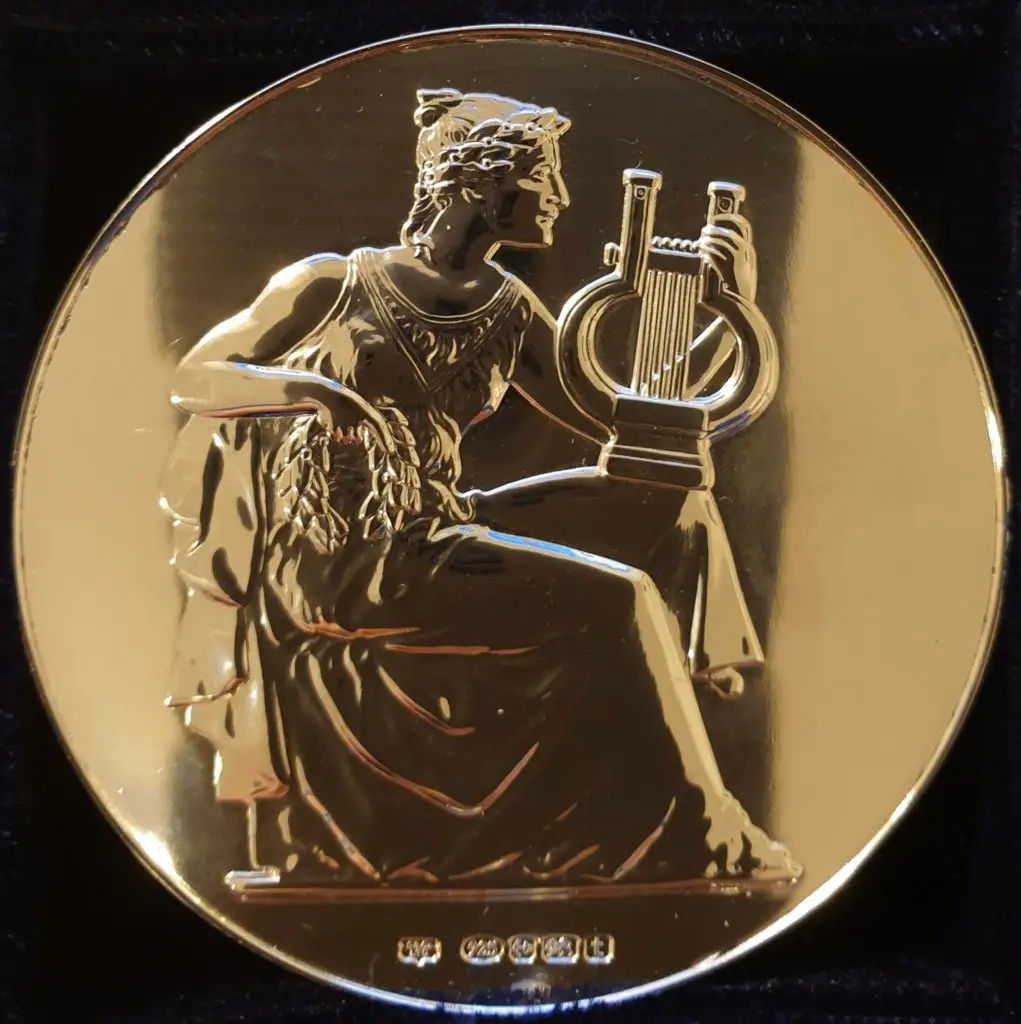 The Isle Medal
The Isle Medal
 Ray being presented with the Isles Medal
Ray being presented with the Isles Medal
In 2022, following several years of research, Ray was awarded the degree of Doctor of Philosophy (PhD) from the University of Salford.
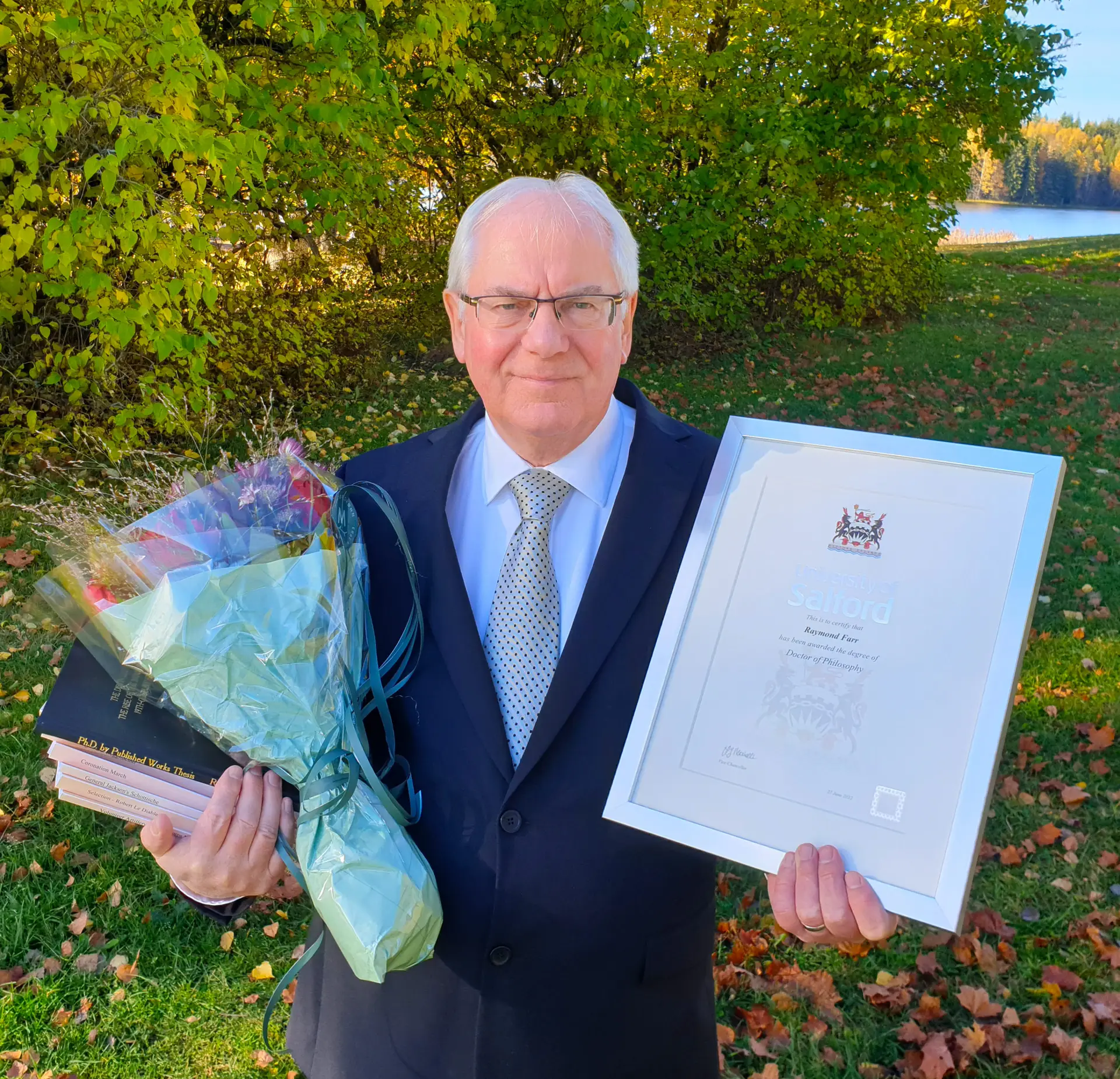 Ray awarded with a PhD
Ray awarded with a PhD
In 2023, Ray was awarded the prestigious BUMA Award for outstanding contribution to band repertory.
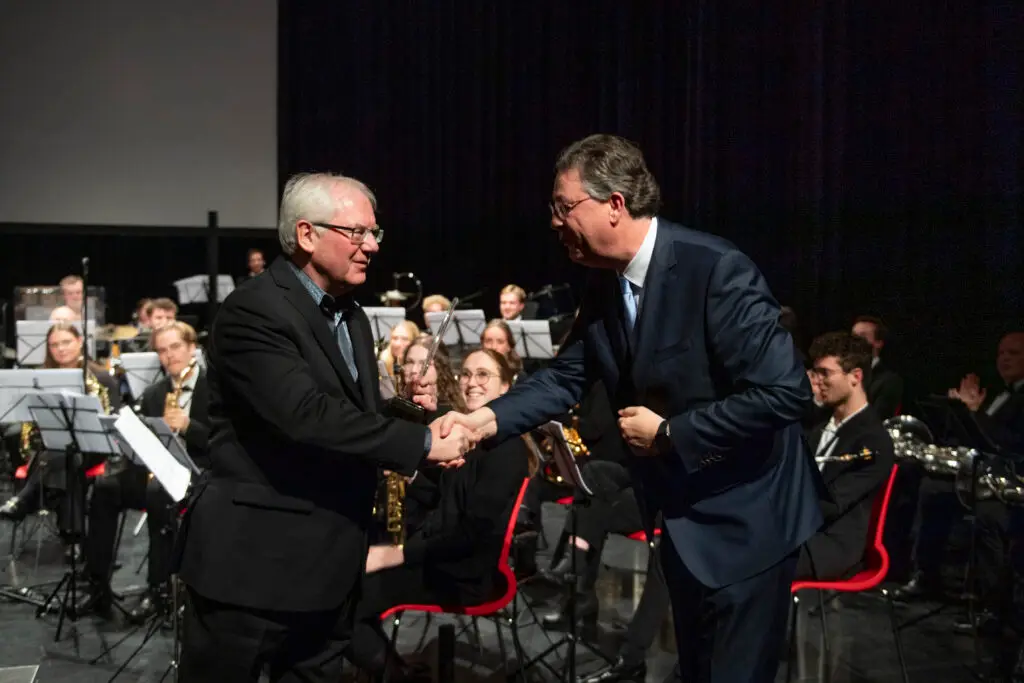 Ray being presented withe BUMA Award 2023
Ray being presented withe BUMA Award 2023
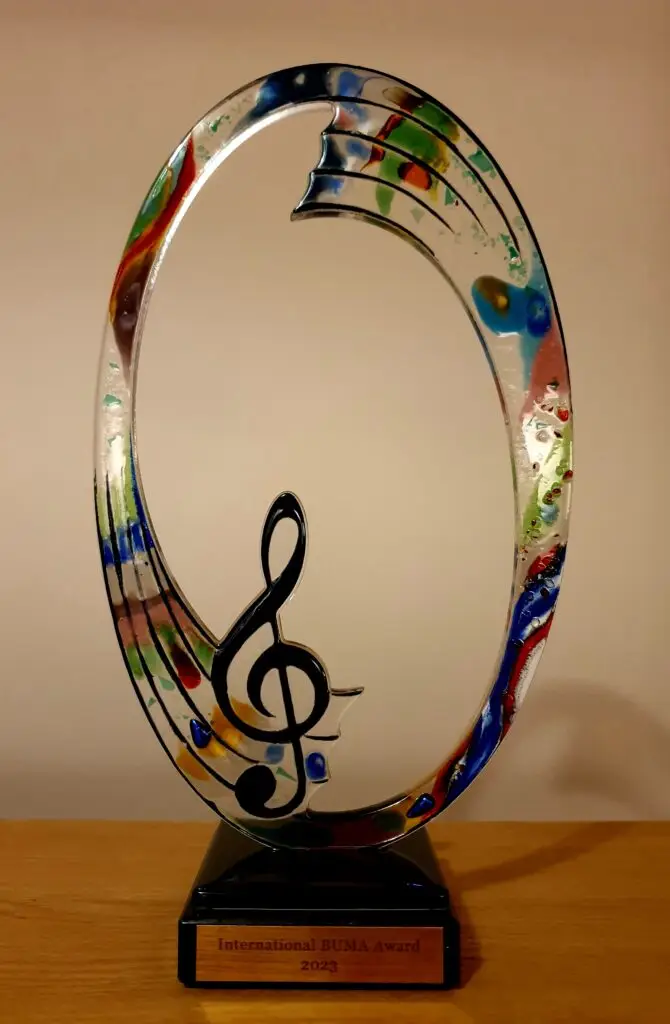 The BUMA Award
The BUMA Award
